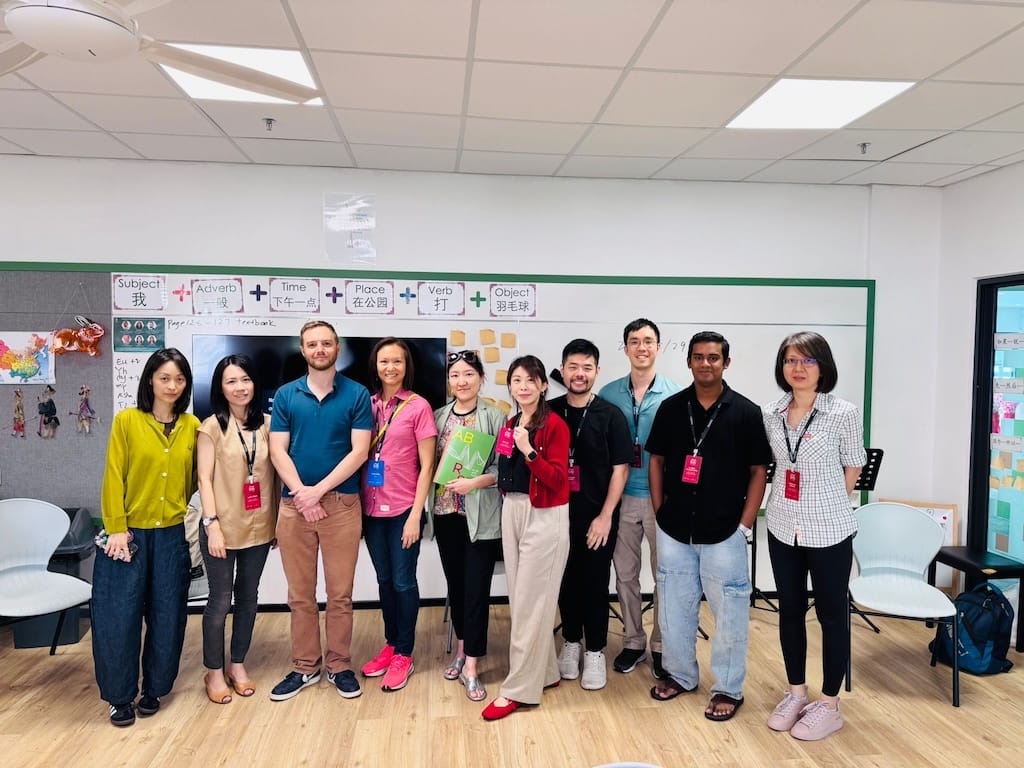W. Abner Immanuel Carlos: A New Voice in Composition
Selected for ABRSM’s 'Writing for Music Education' scheme, Chennai-based composer W. Abner Immanuel Carlos discusses his musical journey, his cross-cultural approach to composition, and how global mentorship is shaping a more inclusive future for music education.

Chennai-based composer W. Abner Immanuel Carlos is part of a new wave of Indian musicians redefining what it means to write within the Western classical tradition. Recently selected as one of only eight composers from Asia for the Associated Board of the Royal Schools of Music (ABRSM)’s flagship Writing for Music Education mentoring scheme, Abner represents a generation eager to bridge cultures, harmonising Western orchestral idioms with the expressive depth of Indian ragas.
As part of ABRSM’s programme, launched in collaboration with Malaysia’s RondoFest, Abner received mentorship from leading composers such as Alan Bullard, Sarah Watts, and Vivian Chua, as well as insights from ABRSM’s Chief Examiners and representatives from the Royal Philharmonic Society.
Through his participation in the Writing for Music Education scheme, Abner joins a growing movement to diversify global music education, ensuring that future syllabuses include works by composers from across Asia. As ABRSM’s Deputy Head of Engagement, James Welburn, notes:
“We work in more than 90 countries around the world and want to reflect the rich musical diversity in those communities. We’re really excited to be working with Abner and look forward to the musical contributions we know he’ll bring to the world of music education.”
In the interview that follows, Abner discusses his early training under his father’s guidance, his fascination with Indian and Western musical languages, the creative challenges of composition, and how programmes like ABRSM’s are helping shape a more inclusive global music landscape.
Serenade Team: How did your journey in music begin, and what inspired you to explore composition alongside learning instruments like the piano, violin, and classical guitar?
W. Abner Immanuel Carlos: My father, P. William Charles, is a music teacher who has been preparing students for ABRSM exams for the past 35 years at our family-owned Antony School of Music in Doveton, Chennai. He is the reason I am involved in music in the first place. I initially started learning three instruments to discover my favourite one, but I became so deeply fascinated by the history, composers, and evolution of all three that I continued learning each of them.
I have completed the DipABRSM in Piano Performance (2019), ATCL in Classical Guitar (2015), and ATCL in Violin (2016), and I plan to pursue further qualifications. My journey as a composer began when I realised I had perfect pitch. It became quite natural to imagine musical ideas without needing an instrument and then notate them on manuscript paper. This led me to study music theory seriously, and in 2023 I successfully completed the LMusTCL in Music Theory, the highest diploma in theory offered by Trinity College London.
ST: You mentioned having many “undeveloped themes and motifs.” Can you tell us more about your creative process and how you plan to evolve these ideas within a Western classical context?
WAIC: Before I joined this programme, I had many ideas for musical motifs and themes that I would jot down but never complete, often due to lack of time or patience. Now, I’ve been able to develop those ideas into complete orchestral and chamber works, which are being edited, published, and performed.
So far, I have completed a Symphony in E-flat major for classical orchestra, a couple of Scherzos in D major and B minor, and a Violin Sonata in A major, which I have already performed with my sister, Adeline Cynthia, an ARSM diploma-holding violinist.
ST: How do you approach blending elements of Indian music with Western classical traditions? Are there particular techniques, scales, or rhythms from Indian music that you enjoy incorporating?
WAIC: I believe Indian music carries incredible emotional depth and nuance, largely because of the thousands of janya ragas that continue to evolve. My ambition is to compose Western-style works using Indian classical ragas as the melodic foundation.
I am particularly drawn to the second group of 36 melakarta ragas in Carnatic music, which feature the raised fourth (prati madhyama). I find this an especially fascinating area of exploration, experimenting with various Indian modes and transcribing them within Western notation opens up an entirely new sound world for composition.
ST: What was your experience like at the ABRSM workshop in Malaysia, and how has the mentorship programme helped shape your vision as a composer?
WAIC: Funnily enough, I began composing new pieces even before I left Penang, that’s how inspiring the workshops in Malaysia were! Witnessing Rondo Fest 2025 in full swing, under the leadership of Kenny Ooi and his team, and experiencing Malaysia’s vibrant musical scene for the first time was a privilege.
I’m especially grateful to James Welburn and Vivian Chua, who conducted the workshops. The Composer Mentorship Programme helped me pick up my pace — I’ve been able to complete my previously undeveloped themes on self-set deadlines. The insights and feedback from mentors like Alan Bullard, Sarah Watts, and Vivian Chua were invaluable in refining my piano and brass works, exploring alternate possibilities, and simplifying scores for younger musicians. One of my favourite quotes from Alan Bullard was: “Every note has a meaning — use it if it is absolutely necessary, and remove it if it doesn’t serve a purpose.”
Sessions with Chief Examiners Mervyn Cousins and Zoe Booth helped me understand the importance of maintaining clear difficulty parameters within a composition, especially when writing for graded exams. Meanwhile, the talk by Harriet Wybor, General Manager of the Royal Philharmonic Society, shed light on the publishing opportunities available for composers outside the UK. The scale of exposure and engagement offered by this programme has been truly remarkable.
ST: Many young musicians in India look up to composers who bridge cultural boundaries. What message would you like to share with aspiring composers who want to write for a global audience?
WAIC: My message to aspiring composers is to focus on consistency — learn to channel your creative pace. In 2025, composers face many challenges: maintaining inspiration, completing works, editing, publishing, and finding opportunities for performance. The process can be overwhelming.
However, the key is to compose with clarity and without unnecessary complications. Simplicity is one of the greatest challenges for any composer — especially when writing within defined parameters or for educational purposes. Developing this discipline will make your music stronger and more widely understood.
ST: In your view, how can programmes like ABRSM’s Writing for Music Education scheme help diversify global music education? What impact do you hope your work will have on future syllabuses?
WAIC: ABRSM’s syllabus has always been impressively diverse, featuring works by composers from across the world — both in the main syllabus and in the extended list at the back of each exam book. The Writing for Music Education initiative is an important and noble step, providing opportunities for emerging composers globally. The 2025 cohort focused on composers based in Southeast Asia, which shows ABRSM’s commitment to inclusivity.
I hope that my work will inspire the next generation of young composers to come forward, share their voices confidently, and contribute to a more globally representative musical education.
ST: Looking ahead, what are some musical projects or ideas you’re most excited to work on in the coming months?
WAIC: I’m looking forward to having my Symphonies in E-flat major and D major performed soon. I’ve also completed a couple of Scherzos in B minor and D major for classical orchestra, which I hope to premiere in the near future, as well as a Violin Sonata in A major, which I have already performed. In addition, I’ve composed a series of works for classical guitar aimed at educational purposes. My immediate goal is to have my orchestral works performed and shared more widely.






